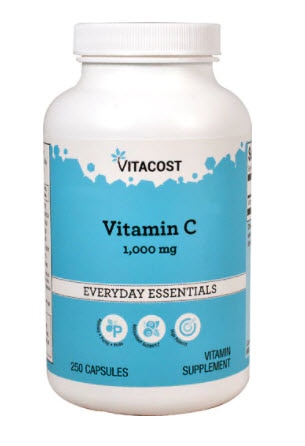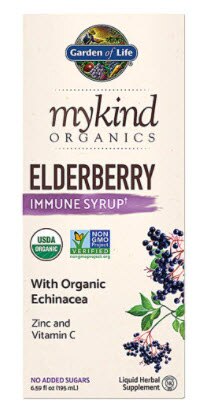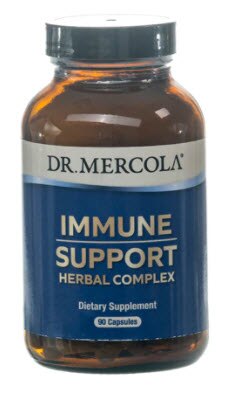As your body’s first line of defense, your immune system is one of the most crucial facets of your well-being. Composed of multiple layers, it helps stave off bacteria, viruses and germs—in short, the very things that cause illness. And with flu season sweeping the country—to say nothing of COVID-19—it’s more important than ever to keep your immunity in tiptop shape. Here are eight savvy ways to take charge of it today.
How to improve immune system health
1. Prioritize sleep
The 24-hour news cycle, mounting deadlines, interpersonal complications, global and economic woes—all can wreak havoc on your ability to score a good night’s sleep. And yet, sleep is one of the most surefire ways to keeping your immune system functioning properly. Why? Because not only does rest help your mind and body repair from everyday stresses, but a lack of sleep also diminishes your natural production of cytokines—protective proteins that are critical to your immune system’s ability to manage infections and illnesses.
If you struggle to get adequate and rejuvenating shuteye, start treating the entire endeavor with as much seriousness as you would your job or workout: Step away from your electronics two hours before bedtime, reduce your alcohol intake, eat dinner at least two to three hours before hitting the hay, and wind down the right way with a lavender-infused bath or a few gentle stretches.
2. Ensure you’re getting enough vitamin D†
The sunshine vitamin—as vitamin D has become to be known—doesn’t just give you a brighter outlook on life: The fat-soluble vitamin, which is stored in your liver and fatty tissues, supports everything from your cardiovascular wellness to your bone health. It also plays a vital role in your immune health by playing a part in the body’s inflammatory responses—a huge topic of concern in our COVID era—and by supporting white blood cells, which circulate throughout your bloodstream and fight infections by attacking foreign pathogens.†
Direct sun exposure—as in, without sunscreen—is the most effective way to absorb this important nutrient, but it can also be found in vitamin D-rich foods such as fatty fish, fortified milk, eggs, and Maitake and Portobello mushrooms. That said, given that fifty percent of the population may be deficient in this essential vitamin, you might want to ask your health care professional for a blood test to assess your levels. If you’re lacking in it, he or she can then advise on a vitamin D supplement and proper dosage.†
3. Strive for a whole foods diet
…and we don’t mean at the posh grocery store. A diet rich in organic, whole foods—read: plenty of fresh fruits and vegetables, unprocessed grains and nuts—contributes to a healthy immune system. How? Take it from Yufang Li, M.D., of the Center for Integrative Medicine at the Cleveland Clinic: “Eighty percent of your immune system is in the gut, so when it’s healthy, we tend to be able to fight off infections faster and better. When it’s not, our immune system is weaker and more susceptible to fighting off infection.”
Still not persuaded that you should put down that fried chicken? Keep in mind that a surplus of meat, as well as fried and processed foods, are generally inflammatory. While you’re cleaning up your diet, give probiotics (either a supplement or fermented foods) a try, too: Healthy gut flora helps generate more antibodies—proteins that help shield you from infections.
4. Supplement with zinc
Found in cells throughout the body, zinc is key to firing up your immune system. In addition to aiding in hormone function and digestion, the mineral helps you ward off infections by battling incoming viruses and bacteria. What’s more, zinc is required to make proteins and DNA, the genetic material in cells—and robust cells contribute to robust health.†
While a number of foods naturally amp up your zinc intake, including oysters, red meat, fortified cereals, and dairy products, up to twelve percent of the population—and forty percent of the elderly—may be in need of more. To the rescue: A quality supplement. New Chapter’s Fermented Zinc Complex, for one, contains 15 mg of this superstar nutrient, as well as elderberry and astragalus—two herbs also associated with immune wellness.†
5. Try herbs for extra support†
…and speaking of herbs: A number of botanicals can organically bolster immune health as well. Curcumin, for example, is rich in antioxidant properties that help you wage war against alien invaders. Peppermint, meanwhile, naturally encourages healthy digestion, which in turn enhances immunity. Roobius boasts terrific amounts of Vitamin C, thereby supporting the production of those aforementioned white blood cells. The much-loved Echinacea brims with polysaccharides that stimulate the release of natural killer cells, while, according to the National Institutes of Health, American Ginseng backs a number of healthy immune functions, including resistance to illness and microbial attacks. And don’t forget the power of modest chamomile: The herb abounds with phenolic compounds that foster immune health.†
6. Relish a comedy
Whether it comes from listening to your favorite comedian on Pandora or in the form of a rom-com, know this: Laughter has been scientifically proven to buoy up immune health.
This is because giggling—which naturally and almost immediately lifts your mood—increases the number of antibodies in your blood, including those in the white cells that are so fundamental to a healthy immune response. Furthermore, laughter can raise the level of antibodies in the mucus manufactured in your nose and respiratory passages—the main means of access for germs.
7. Throw on your running shoes
You don’t necessarily need to actually run but you do need to move—and often. Exercise of any kind—walking, swimming, cycling, dancing around your living room—inspires your body’s antibodies and white blood cells to disseminate more rapidly, thus improving your immune system’s ability to detect, and fight off, dangerous intruders.
Need more motivation? A study published in the British Journal of Sports Medicine determined that those who worked out at least five days a week had half the chance of getting sick than sedentary people. None of this means that you need to be a slave to the treadmill or free weights, either—indeed, over-exercising can strain and weaken your immune system—but it does mean that you should attempt to get thirty to sixty minutes of moderate or vigorous exercise on a daily basis.
8. Combat stress smartly
Another reason to heed #6 and #7: A large body of research has found that exercise reduces stress hormones—and lower stress hormones are directly connected to a healthy immune system. In fact, chronic stress—the sort that you wrestle with on a nearly daily basis—upsurges the level of cortisol in your blood, which can increase inflammation, thereby compromising your capacity to launch an appropriate immune response. Also, enduring stress can mess with the performance of key immune cells—such as lymphocytes—that help you fend off illness.
While managing stress wisely is, at times, easier said than done, committing to ongoing practices can facilitate resilience to both significant and quotidian stressors and help you recuperate faster. A few to try: meditation, yoga, reading (and not off your IG feed), martial arts, breath work, a walk in nature, and even slowly, and deliberately, cleaning your home—in sum, anything that compels you to press pause on your life and take in all the vitality around, and within, you.
†These statements have not been approved by the Food and Drug Administration. These products are not intended to diagnose, treat, cure or prevent disease.




